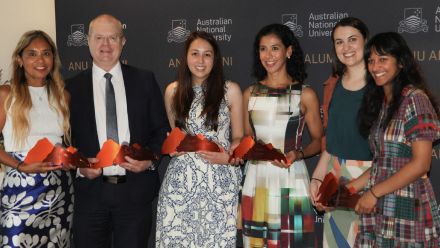We must stay ahead of the vaccine rollout curve
By Dr Adam Henschke
Trust, once lost, is hard to repair. The rollout of the COVID-19 vaccine will require public health officials to pay special care to the community's trust in the program, as much as the practical logistics of the roll out. If and when problems arise in the program, clear, consistent, and accurate communication is essential to maintain public confidence and trust in the vaccines. Without that, we could face a longer and even more costly pandemic.
The reports of deaths related to the Pfizer vaccine rollout in Norway have sounded an alarm in Australia and around the world. The medical director of the Norwegian Medicines Agency stated that "if there is a very short expected life span, if they are terminally ill, you should consider not vaccinating them". The public health response in Australia to what happened in Norway was rapid and fairly consistent - we should wait until there is confirmation that the deaths were caused by the vaccine, and that such deaths need not undermine confidence in the vaccine.
But Australia is not out of the woods with its vaccine rollout. The Norway experience is an example of the kind of hurdles that will confront Australian authorities and others around the world throughout this year, and they will need to be ready to respond quickly and clearly to these challenges as they arise.
We can also learn from Victoria's experience of the second wave of COVID-19 infections of last year. The daily press briefings by political leaders and public health experts such as Daniel Andrews and Brett Sutton were detailed. They did not shy away from bad news, and they kept Victorians informed. Being open, honest, clear about the situation, and responsive to the situation on the ground ensured Victoria's resilience, through repairing and maintaining trust in the greater public health program. We have seen South Australia, New South Wales and Queensland adopt similar approaches when there have been outbreaks in their states.
The capacity for vaccines to effectively minimise the COVID-19 pandemic depends on widespread confidence and trust in those vaccines. Given the rise in online conspiracy theories around COVID-19 and vaccines, public health messaging needs to be spot on. It's essential to assure the community that the vaccine programs are working as they should, acknowledge when problems occur, explain what is being done about such problems and what the implications are for the community.
Ultimately, levelling with the public that there will be problems, delays and complications with the rollout of vaccines across Australia will maintain the community's confidence and trust in the programs, thereby ensuring resilience in the face of future shocks like the Norway experience.
Dr Adam Henschke, from the Crawford School of Public Policy at The Australian National University, researches the ethics of public communication.


